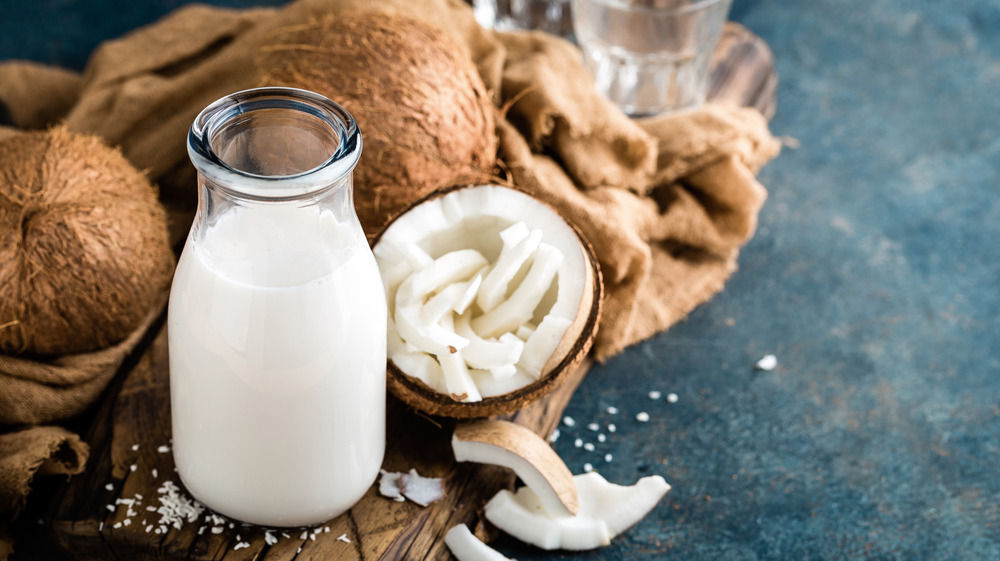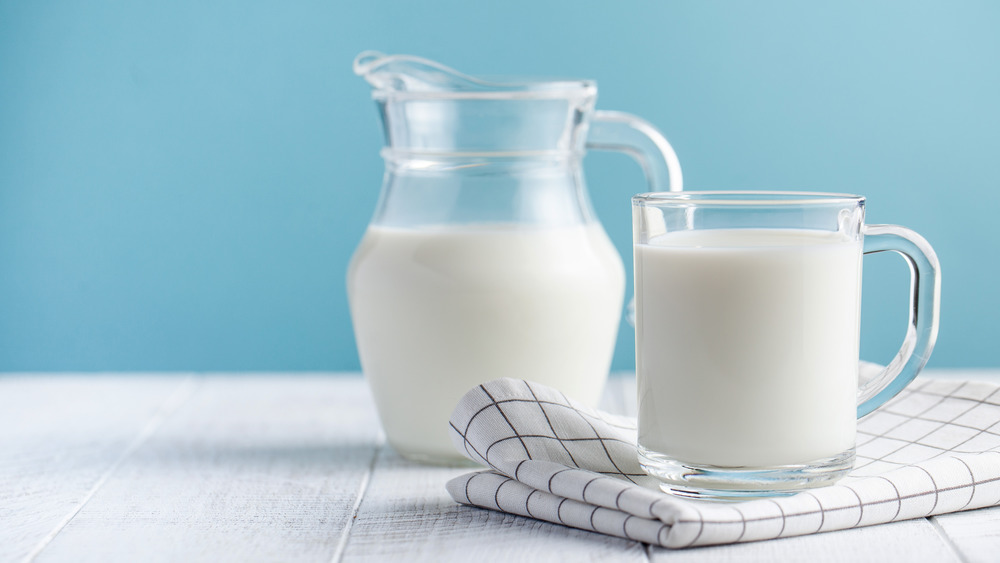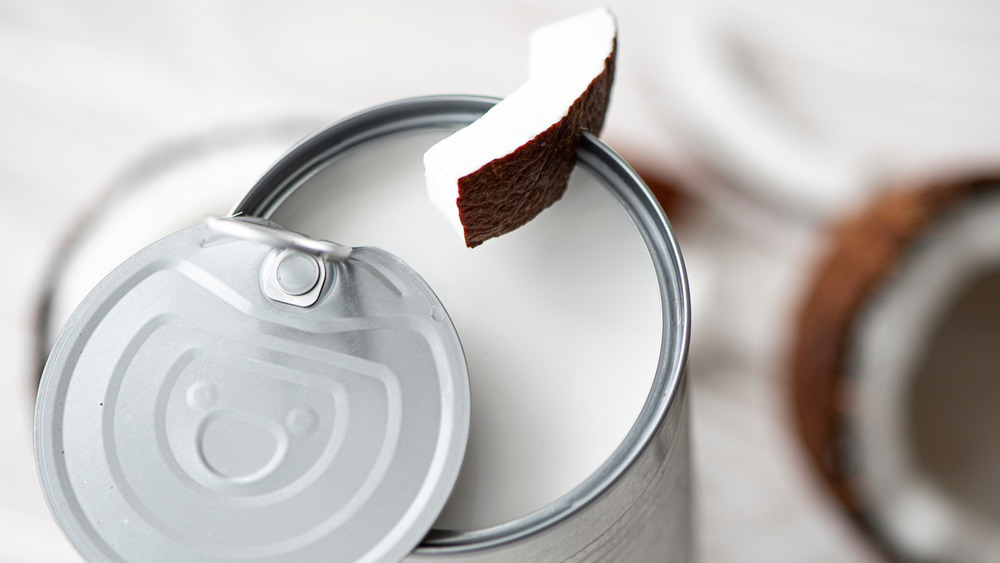How Are Coconut Milk And Regular Milk Different?
Remember those "Got Milk?" posters that were plastered all over the cafeteria in middle school? How about the fact that some schools used to have entire refrigerators full of just milk cartons (and very few, if any at all, other beverage options)? Given all of this promotion, you might wonder if cow's milk is truly good for you and how it compares to popular non-dairy alternatives, like coconut milk.
As you could probably guess, the biggest difference between regular milk and coconut milk is how they're made. While regular milk comes from milking a cow, coconut milk comes from grating the coconut flesh (the white part), soaking it in hot water, skimming off the cream once it rises, and squeezing the remaining liquid through a cheesecloth to extract the milk, according to BBC. The results? Flavor-wise, cow's milk has a slightly sweet flavor, while coconut milk ends up having a nutty, sweeter, and almost floral-like taste (via The Mercury News). Seems pretty straightforward, right? So, what we're really here to discuss is how the two differ in other ways, like nutrition and versatility.
The benefits of regular milk vs. coconut milk
Unsurprisingly, cow's milk has way more calcium than coconut milk — and by "way more," we're talking 235 milligrams more. According to Livestrong, one cup of cow's milk has 275.7 mg of calcium while one cup of coconut milk only has 40.7 mg. Vitamin D often works alongside calcium to protect your bones, and cow's milk provides 16 percent of the daily recommended amount of the vitamin. In case those high levels of calcium and vitamin D aren't enough, cow's milk is also packed with vitamins and minerals like vitamin K, B12, and potassium. Coconut milk also touts its own impressive set of nutrients, which consists of vitamins and minerals like magnesium, copper, manganese, and iron.
Vitamins and minerals aside, if you're counting calories, Livestrong suggests opting for regular milk: "A cup of coconut milk will contribute a whopping 445 calories, compared to 149 in milk." While most of those 445 calories come from coconut milk's fat content, don't let that fool you into thinking it's not a healthy choice. The fats in the milk are called "medium-chain fats," which means they're rapidly broken down and absorbed in the body, making them a quick energy source and less likely to be stored as fat, per Healthline.
Cooking with regular milk vs. coconut milk
Cow's milk is very versatile and is an essential ingredient in fan-favorite dishes and desserts, from casseroles and mac and cheese to milkshakes and beignets. So, when does coconut milk get its time to shine in the kitchen? As it turns out, coconut milk is also super versatile and can be added to both sweet and savory recipes. According to Got Milk, there are three types of coconut milk you'll find at the grocery store, and those are coconut cream, coconut milk, and light coconut milk (which are all different from coconut water, by the way).
If you're not sure which one to buy but you're looking for a substitute for regular milk, your best bet is the refrigerated coconut milk in a carton; those are usually formulated to have the consistency of dairy milk. That said, the latter is more accurately referred to as "coconut milk beverage" since it's more diluted than the canned kind of coconut milk that's specifically used for cooking, Healthline says. So, when would you use the canned version of coconut milk? According to Martha Stewart, canned coconut milk is perfect for baking: "Once paired with a little sugar, coconut milk is transformed from a savory ingredient into a powerful addition in your favorite dessert."


